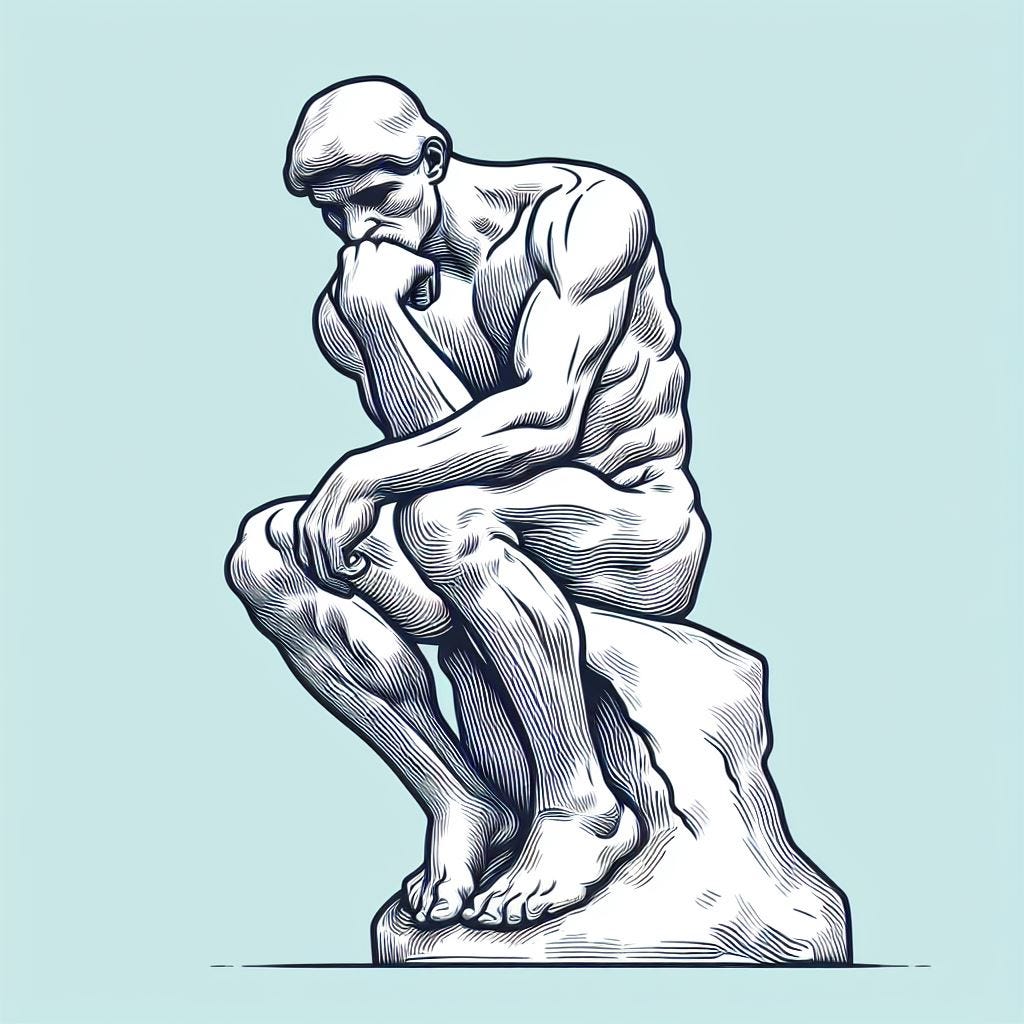In my last post, I covered one of my favorite tools, the humble checklist. It turns out to be extremely effective at helping to prevent stupidity and errors of omission.
This week’s post explores a framework to connect ideas and approaches while keeping me from straying too far off track.
Start with your WHY: Know your values and purpose so you have a compass to guide you. You don’t have to know the destination as long as your compass points you in the right direction. If you’re trying to solve a problem, know why you need to solve it.
Keep your head on straight: Do the maintenance your body, mind, and spirit needs. Avoid making stupid mistakes because you’re tired, rushed, stressed, or sleepy.
Always be moving to a better position: Three things contribute to the outcome of any decision you might ever face. They are:
Luck: Random chance and its effects. - Deal with luck by being alert. Prepare for both opportunities and risks.
Skill - The abilities you’ve built and preparations you’ve made over time. Have you done the work? Do you have the skills? - Always be learning and building your skills.
Starting Position - Compare the lives of someone with motivation and direction, money, health, education, and the wisdom to use them versus a person who is unmotivated, poor, sickly, uneducated, and directionless. - Always be moving toward better starting positions.
The Decisions you make interact with your Luck, Skills, and Starting Positions to produce the outcomes in your life. Each decision, from the smallest to the largest, contributes to the range of possible outcomes you’ll have.
Better Decisions Lead to Better Lives.
Triage your decisions - Taking this step lets you focus effort where it’s needed.
Big, important, life-changing decisions require your full attention. Use an evidence-based process to make the best possible choices.
Most decisions are casual and don’t require a full-on decision process. That’s the sweet spot for using well-curated Rules of Thumb. Put serious thought into the rules you want to live by before the moment comes when you’ll have to decide. [More on that in my next post] …
Make decisions when you’re at your best and create rules for yourself that you pre-commit to following. For example: Don’t take anything you haven’t earned. Another example: Only eat desserts on the weekend.
Pay attention to your habits. They produce a cumulative effect. Try to turn good choices into your default setting.
Great decisions mean nothing until they produce Actions.
Create Strategy - Make certain you clearly define the goal. Once you know the goal, anticipate obstacles and plan actions to overcome the obstacles. Without a goal, an understanding of the likely obstacles, and a plan to overcome them, you don’t have a strategy, just an aspiration or maybe a general direction.
Act - Break your goal down into separate actions or tasks. Assign ownership of the satisfactory completion of each task each task to a single person, even when that person is just you. Monitor each task until it’s complete and accepted. [I’ll have much more on specific ways to make sure you can complete the tasks in a later post.]
Learn - The scientific method is the best self-correcting mechanism we’ve ever discovered. The key to self-correction is to make empirical evidence the deciding factor when judging any theory. In other words, does it pass the test in the real world, with skeptical reviewers closely watching in controlled conditions?
Review your process: Capture your decisions, the alternatives, and the reasons you chose each action in . When you know the outcome of a decision, review it. What worked? Double down on that. What didn’t work? Why? Address that and adjust your process with the information.
Of course, a blog post can’t go into much depth. I haven’t touched on design, systems thinking, mental models, risk management, forecasting, tools, or other important considerations. We’ll save those discussions for later posts.






